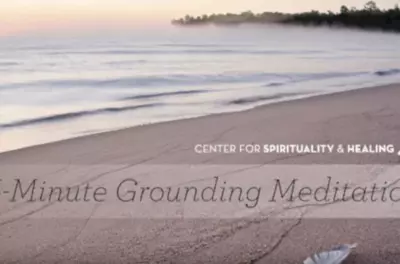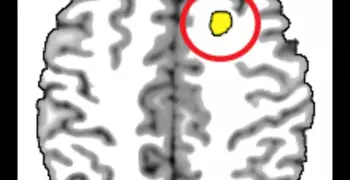Mindfulness for Mental Health

Did you know that almost one in five Americans suffers from an anxiety disorder? And that depression affects nearly 8% of the population? As we move into May, mental health awareness month, these numbers point to a growing need for techniques to help us all cope.
The good news is that simple changes in lifestyle can lead to improved mental health and wellbeing. Mindfulness is one such practice—with strong research supporting its usefulness for those suffering from anxiety, depression, or even just daily stress.
Mindfulness is a buzz word these days and sometimes used in different ways, which can be confusing. But mindfulness is not complicated, it is simply an awareness of the present moment, with an attitude of openness and acceptance. This simple practice can change our habitual reactions and emotional patterns and bring in a new perspective.
Mindfulness has two components that work together to bring relief:
1. Awareness
Awareness allows you to notice emotions, anxieties, negative perceptions and self-talk as they arise, and before they become entrenched. By noticing these things early, you can be more flexible in your responses.
2. An open and accepting attitude
An open and accepting attitude allows you to accept whatever arises, rather than trying to suppress it (which doesn’t work) or making a big deal out of it. When you accept your emotions, you aren’t struggling with internal conflict, so you have more resources to deal positively with the situation.
Like stopping a train
.jpg) You can think of emotional regulation like stopping a train—it works better if you can stop before the train (your emotions) starts rolling too fast. It also helps when your brakes work immediately, without interference. Mindfulness lets you know right away that you need to stop and keeps thoughts and emotions from interfering.
You can think of emotional regulation like stopping a train—it works better if you can stop before the train (your emotions) starts rolling too fast. It also helps when your brakes work immediately, without interference. Mindfulness lets you know right away that you need to stop and keeps thoughts and emotions from interfering.
Think about a time when you got lost in worry—perhaps when a friend or family member didn’t show up on time. Did you start creating stories and working yourself up about a traffic accident or other calamity?
Next time, try a little mindful technique called STOP and see if it helps you wait with a little more comfort!
Slow down
Take a breath
Observe your body, thoughts, and feelings
Process your possibilities, then proceed
You can also try this short 5-min guided meditation.



